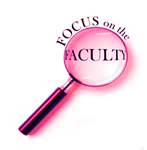In China he worked with international biologists and environmentalists to analyze the environmental impact of the Three Gorges Dam, the largest one in the world at more than one mile long. China wanted a deeper channel for larger ships and to control flooding down the river.
"The Chinese have realized it is damaging the environment," Creed says. "The water behind the dam is now very polluted." The Yangtze River, one of the fastest flowing, was slowed down by the dam. Some fish and aquatic life cannot survive there now and may become extinct as a result."
Creed spent his first 18 years in Longmeadow, Mass., a suburb of Springfield. He went to Fort Worth, Tex., where he earned an undergraduate degree in English at Texas Christian University.
"Mentors played a very specific role in my youth and career," Creed says. "I had excellent middle and high school teachers who mentored me during my formative years. Also, undergraduate professors and graduate faculty mentors played a significant role in my life. There were so many good mentors who influenced me that it's best not to list them to avoid leaving some of them out."
Living with Iranians at TCU during the Iranian hostage crisis and taking Middle East courses during that time in history increased his interest in Middle East studies.
And then there was a Carolina connection.
"The graduate director for the University of South Carolina's International Studies program was a former political science professor at TCU and played a major role in my moving to Carolina to study," Creed says. "I also taught classes in Columbia as a USC graduate student. I came to Charleston for a one-year visiting appointment in 1992 and stayed for a permanent position."
Creed's many research papers, articles and presentations have included and involved the International Studies Association Conference where he presented his paper "Negotiating the Earth's Future Utilizing an 'Earth Summit' Simulation in Teaching International Environmental Politics."
“Emerging Environmental Politics in Jordan" was the subject for his Southeast Regional Middle East and Islamic Studies Seminar (SERMEISS). "The organization promotes opportunities for Middle East and Islamic scholars in the Southeast region of the United States to share common concerns of research and teaching as well as resources," he says.
"My focus is on published articles, essays, and giving talks about my subjects," Creeds says.
He has given talks to numerous Lowcountry groups on aspects of the Middle East and U.S. foreign policy.
Professor Creed impresses on his students the importance of keeping up with current world events and believes that he has an impact on them. "I observe a definite difference in my second course students," he says.
Rising gas prices aren't affecting this professor. Creed says he chose to live downtown so he doesn't have to own a car. "I love to take my rescued golden retriever on long walks to relax during the semester," he says.
Creed enjoys reading both fiction and non-fiction and says he takes lots of reading with him during his international trips. His travels have also taken him to Spain and Portugal.
Professor Creed's studies, seminars, talks, interests in international environmental politics, and his efforts to help his students and others understand the Middle East and his subjects make him a definite asset to the College of Charleston.
###
|

